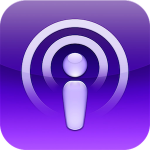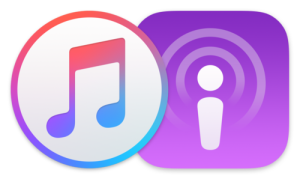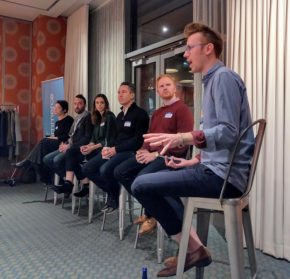Have you started a podcast yet? If not, you’re potentially missing out on a direct connection to customers and prospective clients, as the number of monthly podcast listeners has tripled in five years to 75 million. Podcasting has yet to reach its zenith, with new shows and topics cropping up by the day as brands and publishers realize the value of a direct voice of authority and authenticity in a world of hype-driven advertising.
Millions in the daily commute grind spent their gridlock time listening to podcasts. Not everyone has time to read your blog or keep up with your social posts – an audio format for your ideas and offers is essential in the time-is-money world. So how do you keep your brand engagement active, particularly in an E-Commerce world where physical retail isn’t an option? Download-ready podcasts allows brands to develop a true-voice persona while advertising inexpensively. Eventually, several episodes with valuable content will make great strides in defining your company’s profile in the minds of an unlimited audience.
So what are you waiting for? If the endless options and avenues to getting your own podcast started are paralyzing, you’re not alone. I’ve compiled a good range of info to help you get started, from help with technical resources to the all-important question of why.
Plan Your Podcast
 There are an incredible number of B2B podcasts out there, and Marketing Dive has compiled seven of the best for your quick reference. Business-podcast rookies can find clear-cut paths to success through the expert advice of B2B podcasters and brands who are already finding a foothold in the field. I’ll add one to that list: Tim Ferriss’ podcast, the #1 business podcast on all of iTunes. In addition to interviews with a kaleidoscopic range of top-level CEOs, celebrities and industry heads, Ferriss also offers vital meta-learning tactics in his 4-Hour Chef audiobook, which is totally free on StackSocial.
There are an incredible number of B2B podcasts out there, and Marketing Dive has compiled seven of the best for your quick reference. Business-podcast rookies can find clear-cut paths to success through the expert advice of B2B podcasters and brands who are already finding a foothold in the field. I’ll add one to that list: Tim Ferriss’ podcast, the #1 business podcast on all of iTunes. In addition to interviews with a kaleidoscopic range of top-level CEOs, celebrities and industry heads, Ferriss also offers vital meta-learning tactics in his 4-Hour Chef audiobook, which is totally free on StackSocial.
Gear
Your recording will require some basic hardware and software essentials. As for software, a wide range of options can do the trick. Many podcasts are done on free iPhone apps, while others are recorded directly to GarageBand. Have a look at 45 top podcasters’ recommendations on the necessary gear to kick off a successful series.
On the hardware side, a Macbook Pro is ideal, though an external hard drive is recommended in such a case to handle the heavy data use. PCs are, of course, just fine – as long as you have an audio input.
Microphones: Don’t cut corners, but don’t break the bank. While you have a wide variety to explore, Blue Microphones’ Snowball iCE is ideal, a plug-and-play USB mic with swivel tripod stand. Another popular mic, the Samsung Meteor will run you $49.99 on Amazon.
Headphones: Everyone has their favorite, and as long as they do what they’re supposed to, you don’t have to stress this one. Good quality headphones of your own choosing are all you need. Built-in microphone not recommended.
Choose Your Audience
Trying to appeal to everyone is the easiest way to fail. The kaleidoscope of interests & passions out there is exceeded only by the amount of opinions and polarities involved. Find your niche, do your research and stay informed. What can you offer to the conversation that hasn’t been said before? How can you inspire your listeners? Think about what you can offer in a way that nobody else is.
Establish Consistent Structure
How long and how frequent will each episode be? Establishing regularity is key for building an audience. Will the show be segmented? Do you have a sponsorship plan? Will you feature guests?
Strong Content is Key
No matter how intelligent and charismatic your host may be, off-the-cuff podcasting is risky business. What ideas do you have to offer that’s worth the direct attention of strangers? Establish an outline structure, key points of discussion, and guide conversations with guests to remain on-topic. Bouncing from topic to topic with rambling digressions is unappealing at best. Bullet points for reference will help guide the discussion down a clear path.
Personality
You aren’t going to be Tim Ferriss, Joe Rogan or Tony Robbins, so don’t try to sound that way. Speak with authentic character, express enthusiastic humility in your words and be as informative and engaging as you can.
Promote Your New Brand Voice
 The recording may be finished, but your work is far from complete. Promote your podcast in consistent installments via social media, newsletters, RSS feeds and more. Link to previous posts whenever contextually appropriate, and keep the conversation going so your prospective client, partner or customer is consistently drawn to you.
The recording may be finished, but your work is far from complete. Promote your podcast in consistent installments via social media, newsletters, RSS feeds and more. Link to previous posts whenever contextually appropriate, and keep the conversation going so your prospective client, partner or customer is consistently drawn to you.
A few great examples can be found on Entrepreneur’s list of 11 Clever Ways to Promote Your Podcast, including submitting it to iTunes, implementing video and more.
Happy ‘Casting!
Keep up with our latest deals and updates on StackSocial’s email newsletter – subscribe here.

